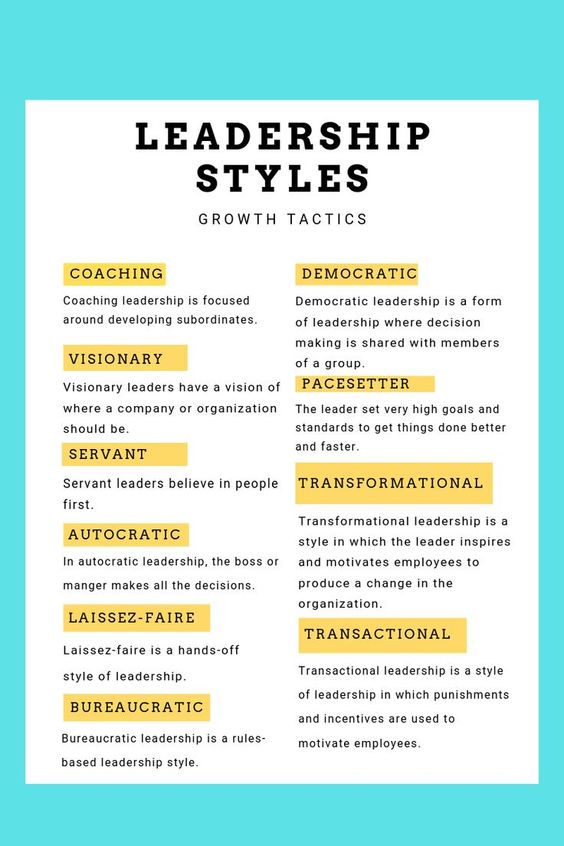Leadership plays a crucial role in driving the success of any organization. A strong leader guides individuals and teams towards achieving common goals and ensures that everyone is working towards a shared vision. In this blog post, we will explore the importance of leadership and how it directly impacts the success of a business.
Jump To Section
Why Leadership is Important
Leadership is not just about being in a position of power; it is about inspiring and motivating others to reach their full potential. Effective leaders have the ability to influence their team members and create an environment where everyone feels valued and motivated to perform at their best.
Effective Leadership in Organizations
In organizations, the importance of good leadership can’t be overstated. Effective leadership sets the direction, establishes goals, and creates a roadmap for success. Leaders provide guidance and support to their employees, ensuring that each individual understands their role and responsibilities within the organization. This clarity helps in aligning efforts and achieving collective goals.
The Role of Leadership Skills in Success
Leadership skills, such as strong communication, decision-making, and problem-solving abilities, are crucial in driving success. Leaders who possess these skills can effectively communicate expectations, make informed decisions, and solve complex problems that may arise in the business environment.

Benefits of Effective Leadership Skills
Effective leadership promotes productivity and efficiency within an organization. When employees receive clear guidance, support, and motivation from their leaders, they are more likely to perform at their best, leading to increased productivity and efficiency.
Improved employee morale and satisfaction
Leadership has a direct impact on employee morale and satisfaction. A supportive and engaging leader creates a positive work environment that fosters trust, collaboration, and satisfaction among team members.
Better organizational communication and teamwork
Leadership plays a crucial role in facilitating effective communication and fostering teamwork. By establishing open lines of communication and encouraging collaboration, leaders enable efficient exchange of ideas and promote a cohesive working environment.
Enhanced problem-solving and decision-making
Strong leaders possess problem-solving and decision-making skills that enable them to address challenges and make informed choices. By involving their team members in the decision-making process, leaders can tap into collective intelligence and arrive at effective solutions.
Successful change management
Leadership is instrumental in navigating change within an organization. A competent leader can effectively manage change by helping employees understand the need for change, providing support during transitions, and maintaining morale during periods of uncertainty.
Characteristics of Effective Leadership

The Power of Vision
Effective leaders possess a powerful vision that guides their actions and inspires others. They are able to clearly articulate their goals and objectives, helping to create a sense of purpose and direction within their team. Think of a leader who has left a lasting impact on you – chances are, their passion and vision have played a significant role.
By setting a clear vision, leaders create a roadmap to success. They are able to communicate the bigger picture to their team and motivate them to work towards a common goal. A compelling vision energizes and drives individuals to exceed their own expectations, as they can see how their efforts contribute to the greater vision.
Example: One of history’s most renowned leaders, Martin Luther King Jr., had a powerful vision for racial equality and justice. Through his famous “I Have a Dream” speech, King portrayed a future where individuals were judged solely on the content of their character, not the color of their skin. His vision inspired millions and galvanized a movement that continues to shape our society today.
Strong Communication Skills
Effective leaders are excellent communicators. They possess the ability to articulate their ideas, goals, and expectations clearly and concisely. They actively listen to others, demonstrating a genuine interest in their perspectives and opinions.
Communication is a two-way street. Leaders who actively listen create an environment where team members feel valued and understood. This leads to improved collaboration, problem-solving, and enhanced trust among team members.
When leaders communicate effectively, they ensure that everyone is on the same page. Misunderstandings and conflicts are reduced, productivity is increased, and team cohesion is strengthened.
Example: Imagine a leader who sets aside time to meet with their team members one-on-one regularly. They actively listen, ask open-ended questions, and provide constructive feedback. This leader’s strong communication skills create an open and inclusive environment where team members feel comfortable approaching them with ideas, concerns, or suggestions.
Building Trust and Relationships
An effective leader understands the importance of trust in their relationships, whether with team members, colleagues, or stakeholders. Trust is the foundation upon which successful leadership is built.
To build trust, leaders must demonstrate transparency, integrity, and reliability. They follow through on their commitments, are open about their actions and decisions, and create an environment of fairness and honesty. When team members trust their leader, they are more willing to take risks, share ideas, and collaborate effectively, leading to increased innovation and productivity.
Example: Consider a leader who consistently acknowledges their mistakes, takes responsibility, and learns from them. This humility and authenticity build trust within the team, as they see that their leader is not afraid to show vulnerability. By cultivating trust, this leader creates a safe and supportive environment where individuals thrive and achieve their full potential.
Emotional Intelligence
Leaders who possess emotional intelligence are attuned to their own emotions and those of others. They demonstrate self-awareness, empathy, and the ability to regulate their emotions in various situations.
Leaders with high emotional intelligence are able to understand and manage their own emotions effectively. They can remain calm, composed, and level-headed, even in challenging or high-pressure situations. This emotional stability allows them to make rational decisions and maintain a positive, supportive atmosphere.
Additionally, leaders with emotional intelligence exhibit empathy towards others. They are able to understand and relate to the thoughts, feelings, and experiences of those around them. This empathy enables effective leaders to build strong relationships and foster a sense of belonging within their team.
Example: Think of a leader who, when faced with a team member’s personal issue, shows empathy by acknowledging their challenges and providing support. By displaying emotional intelligence, this leader creates a supportive environment that not only helps the individual through their difficulty but also strengthens the team bond.
Adaptability and Flexibility
Leaders who excel in adaptability understand that change is inevitable. They possess the ability to quickly adapt to new circumstances, whether arising from external factors or internal dynamics within the team.
Adaptable leaders embrace change and view it as an opportunity for growth and improvement. They encourage their team members to be open to change, fostering a culture of continuous learning and innovation.
Flexibility is closely linked with adaptability. Effective leaders are flexible in their approach, understanding that different situations may require different responses. They are open to considering alternative ideas and perspectives, ensuring that solutions remain flexible and dynamic.
Example: Consider a leader who navigates a sudden organizational restructuring with grace and composure. They understand the need for change, communicate transparently with their team, and ensure that everyone feels heard and supported. This leader’s adaptability and flexibility are crucial in maintaining stability and motivation during times of uncertainty.
The Development of Strong Leadership Skills
Leadership skills can be developed and honed through training, mentorship, and continuous self-improvement. By actively seeking opportunities to learn and grow, aspiring leaders can enhance their skills and become more effective in their roles.

Exploring Different Leadership Styles
Leadership styles vary, with some leaders adopting an authoritarian approach, while others prefer a more participative or transformational style. Each style has its strengths and weaknesses and may be more suitable in different situations or organizational cultures.
An authoritarian leadership style is characterized by a leader who makes all decisions without consulting their team members. They typically have a clear vision and expectations of their subordinates, and they provide direct guidance and instruction. This style can be effective in situations where quick decisions need to be made or when employees require close supervision. However, it can lead to a lack of creativity and innovation, as team members may not feel empowered to share their ideas or take ownership of their work.
On the other hand, a participative leadership style involves actively involving team members in decision-making processes. Leaders who adopt this style encourage open communication, collaboration, and inclusiveness. This approach can foster greater motivation, engagement, and commitment among team members. It also allows for diverse perspectives and ideas to be considered, leading to better overall decision-making. However, it can be time-consuming and may slow down the decision-making process, especially in urgent situations.
Transformational leadership focuses on inspiring and motivating employees to achieve their full potential. Leaders who adopt this style often lead by example, set high standards, and communicate a compelling vision that inspires and energizes their team. They also develop and mentor their employees to help them grow and succeed. Transformational leadership can create a positive work environment, increase employee satisfaction, and foster a sense of purpose. However, it may require a leader with exceptional charisma and vision, and it may not be suitable for all organizational cultures or contexts.
In conclusion, while leadership styles can vary, each has its strengths and weaknesses. It is important for leaders to consider the context, the needs and preferences of their team, and the organizational culture before determining the most suitable leadership style. A flexible approach that combines different styles may also be beneficial in different situations.
Becoming a Successful Organizational Leader

To become a successful leader, it is crucial to focus on developing essential skills such as effective communication, emotional intelligence, problem-solving, decision-making, and empathy.
The Importance of Self-Leadership
It’s essential to recognize that leadership starts from within. Before leading others effectively, one must first learn to lead oneself. Self-leadership forms the foundation for successful leadership, as it allows individuals to cultivate qualities and habits that positively influence those around them.
A. Self-Reflection and Continuous Personal Growth
Successful leaders engage in regular self-reflection, taking time to evaluate their strengths, weaknesses, and areas for improvement. They actively seek feedback and proactively work on personal and professional development. By continuously learning and growing, leaders set a powerful example for their teams and foster a culture of continuous improvement.
B. Understanding and Managing Emotions
Emotional intelligence is a key component of effective leadership. Successful leaders possess a high level of self-awareness, allowing them to understand and manage their own emotions. By doing so, they can also empathize with others and build strong connections based on trust. Emotional intelligence enables leaders to navigate conflicts, inspire collaboration, and create a harmonious work environment.
C. Building Trust and Credibility through Authenticity
Trust is the cornerstone of successful leadership. Leaders who are authentic, genuine, and transparent naturally earn the trust and respect of their teams. By staying true to their values and consistently acting with integrity, leaders establish credibility and create an environment where individuals feel safe to take risks and share their ideas openly.
Empowering Others and Fostering Collaboration
While great leaders possess remarkable individual qualities, they also understand the immense power of empowering others and fostering collaboration. By doing so, they create an environment where every team member feels valued and can contribute their unique skills and perspectives.
A. Delegating Responsibilities and Promoting Autonomy
Successful leaders trust their team members and recognize their potential. They delegate responsibilities accordingly, allowing individuals to take ownership of their work and showcase their abilities. By promoting autonomy, leaders not only increase efficiency but also foster a sense of empowerment and fulfillment among team members.
B. Encouraging Creativity and Innovation
Innovative ideas are often the driving force behind progress and growth. Successful leaders create a culture where individuals feel encouraged and supported to think outside the box. They provide space for creativity, inspire innovation, and empower their team members to take calculated risks. By doing so, they unlock the full potential of their teams and drive forward-thinking solutions.
C. Building Strong and Engaged Teams
Leaders who prioritize collaboration go beyond fostering individual strengths; they also establish strong and engaged teams. By creating a culture of inclusivity, open communication, and trust, leaders enable teams to work cohesively towards a common goal. They leverage the diverse skills and perspectives of their team members, ultimately driving better results and fostering a supportive work environment.
The Importance of Leadership During Change and Adversity
Leadership is truly tested during times of change and adversity. Successful leaders rise to the challenge, providing guidance, support, and a steady hand to navigate through uncertainty.
A. Clear Communication and Transparency
During times of change, clear and transparent communication is essential. Successful leaders ensure that their team members are well-informed, sharing updates, and addressing concerns promptly. By maintaining open lines of communication, leaders foster trust and reduce uncertainties, helping their teams navigate through the complexities of change.
B. Maintaining a Positive Attitude and Providing Support
Leaders ultimately set the tone for their teams, and a positive attitude in the face of adversity is contagious. Successful leaders remain optimistic, provide support, and motivate their team members to overcome challenges. By doing so, they instill confidence, resilience, and determination within their teams.
C. Leading by Example and Demonstrating Resilience
In times of adversity, leaders must lead by example. Successful leaders show resilience, adaptability, and a willingness to push forward despite setbacks. They display a calm and composed demeanor, inspiring confidence and demonstrating that challenges can be overcome. By embodying resilience, leaders empower their teams to navigate through uncertainty and emerge stronger.
Final Thoughts: Why is Leadership Important
Leadership is not simply a title. It is the driving force behind the success of any organization. Effective leadership promotes employee productivity, satisfaction, and engagement, while also improving organizational communication, teamwork, and problem-solving abilities. Developing strong leadership skills, understanding different leadership styles, and creating a positive organizational culture are crucial steps toward becoming a successful leader. By investing in leadership development, businesses can secure their path to success and thrive in the ever-evolving business landscape.


